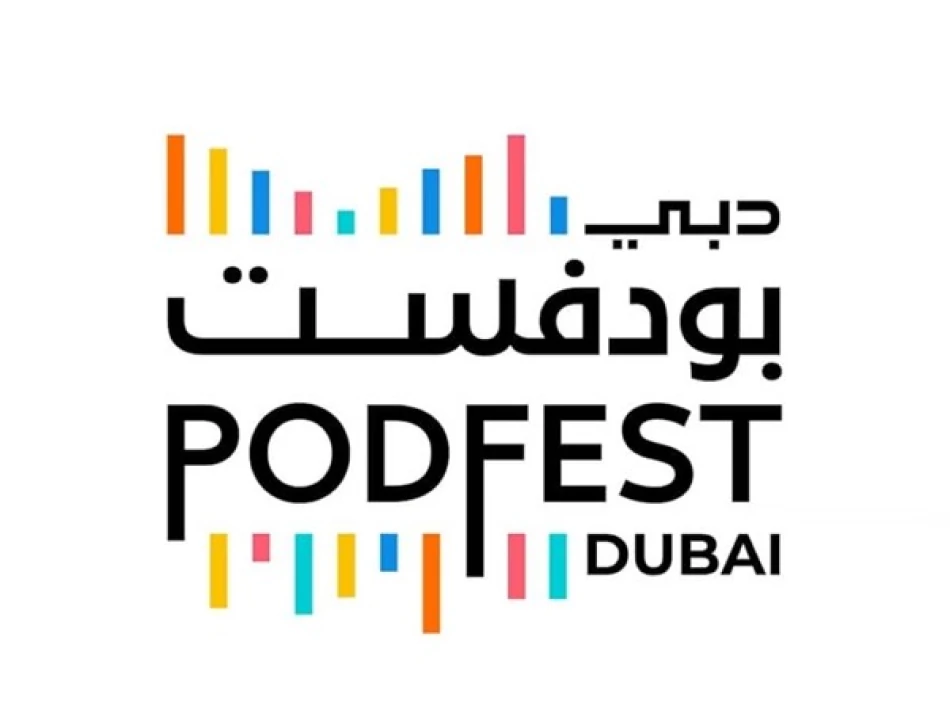
Dubai Press Club Hosts 'Podfast' Event on September 30th
Dubai Positions Itself as Middle East's Audio Content Capital with Fifth Annual Podcast Festival
Dubai is making a strategic play to dominate the region's rapidly growing podcast industry, hosting its fifth annual "Dubai Podfest" on September 30th under the patronage of Sheikh Ahmed bin Mohammed bin Rashid Al Maktoum. The timing coincides with International Podcast Day, signaling the emirate's intent to capture a larger share of the Middle East's estimated $2.3 billion digital media market.
Strategic Timing Amplifies Regional Ambitions
The Dubai Press Club's decision to align the festival with International Podcast Day represents more than ceremonial scheduling—it's a calculated move to position Dubai as the region's audio content hub. By bringing together major podcast networks, regional media institutions, and international content companies, the event creates a marketplace for deals, partnerships, and knowledge transfer that could reshape the Arabic-speaking podcast landscape.
This positioning mirrors Dubai's broader strategy of becoming a regional headquarters for digital industries, similar to how it captured fintech and cryptocurrency businesses through favorable regulations and world-class infrastructure.
Arabic Podcasting's Untapped Potential
Market Dynamics Favor Growth
The Arabic podcast market remains significantly underserved compared to English-language content, despite representing over 400 million potential listeners across the Middle East and North Africa. While Spotify reports that podcast consumption grew by 200% in the MENA region over the past two years, Arabic content still accounts for less than 5% of global podcast production.
This gap represents both challenge and opportunity. Dubai's festival aims to bridge this divide by connecting content creators with distribution platforms and monetization strategies that have proven successful in mature markets like the United States, where podcast advertising revenue exceeded $1.8 billion in 2023.
Infrastructure Advantages
Dubai's existing media ecosystem provides crucial advantages for podcast development. The emirate already hosts regional offices for major streaming platforms, advertising agencies, and content production companies. The Dubai Media City free zone offers tax incentives and streamlined licensing that have attracted over 2,000 media companies.
Workshop Strategy Targets Skill Development
The festival's workshop component addresses a critical bottleneck in regional podcast growth: technical expertise and production quality. Unlike traditional media, podcasting requires creators to master recording, editing, distribution, and audience development—skills that many talented Arabic content creators currently lack.
By focusing on capability building rather than just networking, Dubai Podfest differentiates itself from similar events in other regional media centers like Beirut or Cairo, which often emphasize discussion over practical skill transfer.
Investment and Revenue Implications
The festival's emphasis on major companies and international networks suggests Dubai is positioning itself for significant investment flows into Arabic podcast content. Regional venture capital firms have begun allocating funds specifically for Arabic digital content, with podcast-focused startups receiving over $50 million in funding across the Gulf states in 2023.
For advertisers, the event represents access to an increasingly attractive demographic: young, educated Arabic speakers with disposable income who are difficult to reach through traditional media channels. This audience commands premium advertising rates in digital formats, making podcast monetization particularly lucrative in Gulf markets.
Regional Competition and Differentiation
Dubai faces competition from other regional media hubs, particularly Riyadh's growing entertainment sector and Doha's sports media investments. However, the emirate's established reputation for media freedom within regulatory boundaries gives it advantages for content creators seeking to address sensitive topics while maintaining commercial viability.
The festival's international participation also positions Dubai as a bridge between Arabic content and global distribution platforms—a role that could prove crucial as streaming services seek to expand their Arabic offerings to compete with regional players.
Most Viewed News

 Layla Al Mansoori
Layla Al Mansoori






